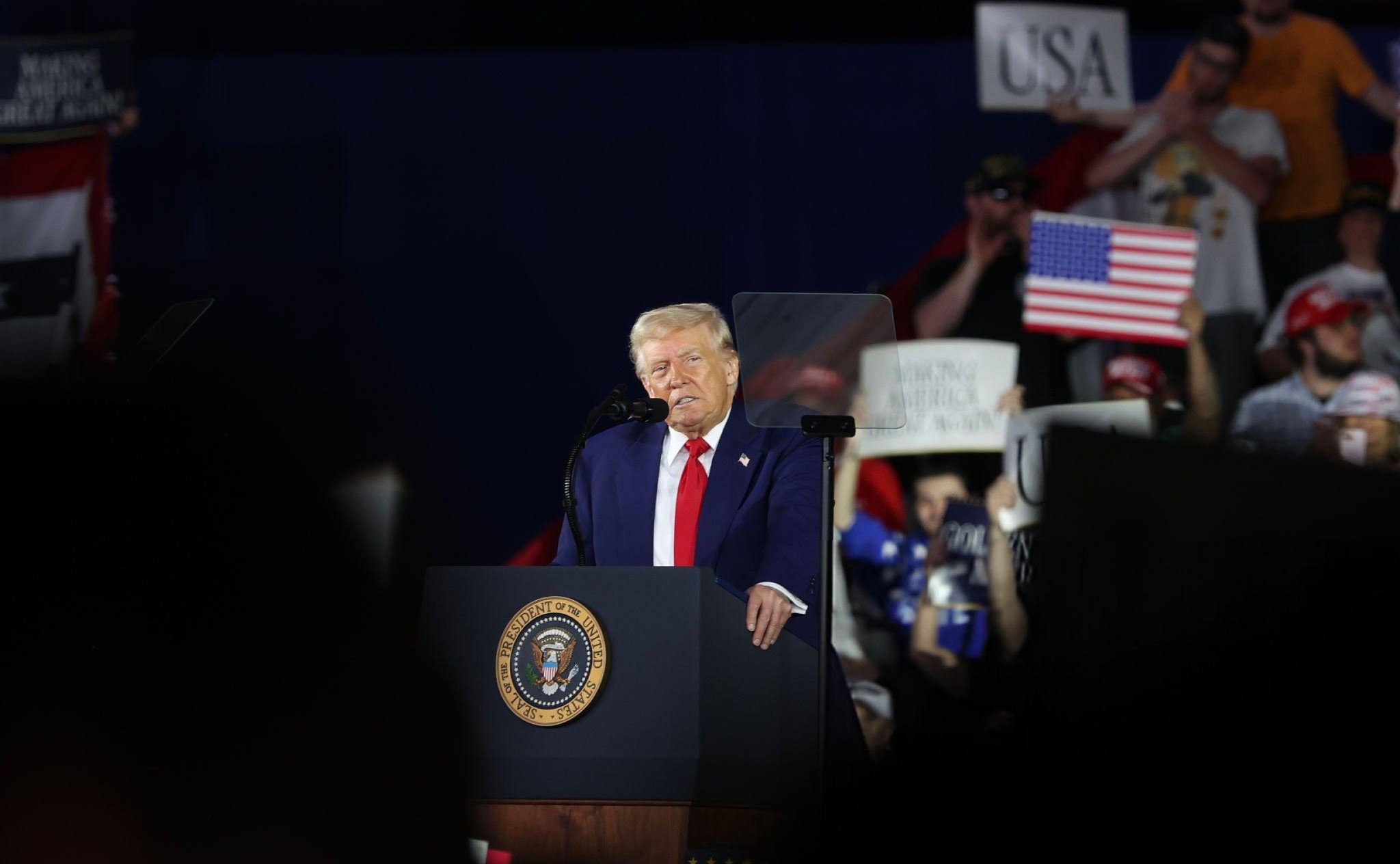The FTSE 100 recovered its footing on Wednesday to close higher, even as markets across the Atlantic faltered following news that the US economy contracted in the first quarter of 2025. The American economic downturn — a 0.3% drop in gross domestic product — unsettled global investors and sent Wall Street tumbling, although London’s blue-chip index managed to finish in the green.
The FTSE 100 gained 31 points, or 0.4%, to end the session at 8,495, having rebounded from earlier losses spurred by the disappointing US data. In contrast, Wall Street’s mood was gloomier. The S&P 500 fell by 1% and the Dow Jones Industrial Average dropped 0.74% as European markets closed, recovering slightly from deeper losses earlier in the day.
The contraction in US GDP is the first since early 2022 and comes amid renewed economic uncertainty fuelled by President Donald Trump’s threats of sweeping trade tariffs. The figures mark an awkward milestone for the President, arriving just as his administration crosses the 100-day threshold since returning to office.
Kallum Pickering, chief economist at Peel Hunt, said: “This is not the headline President Donald Trump would have hoped for to mark his first 100 days back in office. The first quarter GDP drop is down entirely to his administration’s misguided trade policies – which had been signalled on the campaign trail.”
Markets initially reacted with volatility, with the FTSE 100 dipping in the afternoon session before regaining lost ground. European markets showed a more modest response, with Germany’s Dax closing up 0.1% and France’s Cac 40 gaining 0.4%.
Currency markets also reflected the jitters. The pound fell 0.5% against the US dollar, trading at $1.3338, while slipping 0.2% against the euro to €1.1757.
In corporate news, UK banking giant Barclays posted a strong trading update, reporting a 19% increase in pre-tax profits, largely driven by a surge in trading activity linked to the escalating trade tensions. However, the bank warned of storm clouds ahead, having increased its provisions for bad loans due to concerns about the American economic outlook.
Barclays said it “continues to monitor the heightened uncertainty in the near-term macroeconomic outlook, especially in the US”. With over 20 million customers in America, the bank is heavily exposed to potential fallout from the White House’s tariff threats. Its shares fell 1.4% on Wednesday despite the positive earnings.
Meanwhile, GlaxoSmithKline (GSK) offered a brighter note. The pharmaceutical giant announced robust quarterly results, with a 17% rise in sales from its speciality medicines division, fuelled by demand for treatments in oncology, respiratory conditions, and HIV. The performance helped offset weaker results from its vaccine business. GSK said it is “well positioned” to weather any financial disruption from potential US tariff changes. Investors responded positively, sending shares up 3.7%.
Smith & Nephew, Coca-Cola HBC, and Pearson were among the top risers on the FTSE 100, climbing 5.8%, 3.9%, and 3.6% respectively. SSE also saw strong gains, up 2.9% on the day.
On the downside, mining stocks took a hit, with Glencore dropping 7.4%, Anglo American losing 4.6%, and Antofagasta down 3.6%, as concerns over slowing global demand weighed on commodity prices. HSBC fell 2.8%, while JD Sports slipped 2.7%.
The day’s trading highlighted the stark divergence between UK and US markets, with investors in London appearing to shrug off overseas worries in favour of domestic resilience. Still, ongoing trade tensions and weak US growth figures are likely to keep global markets on edge in the coming weeks.






